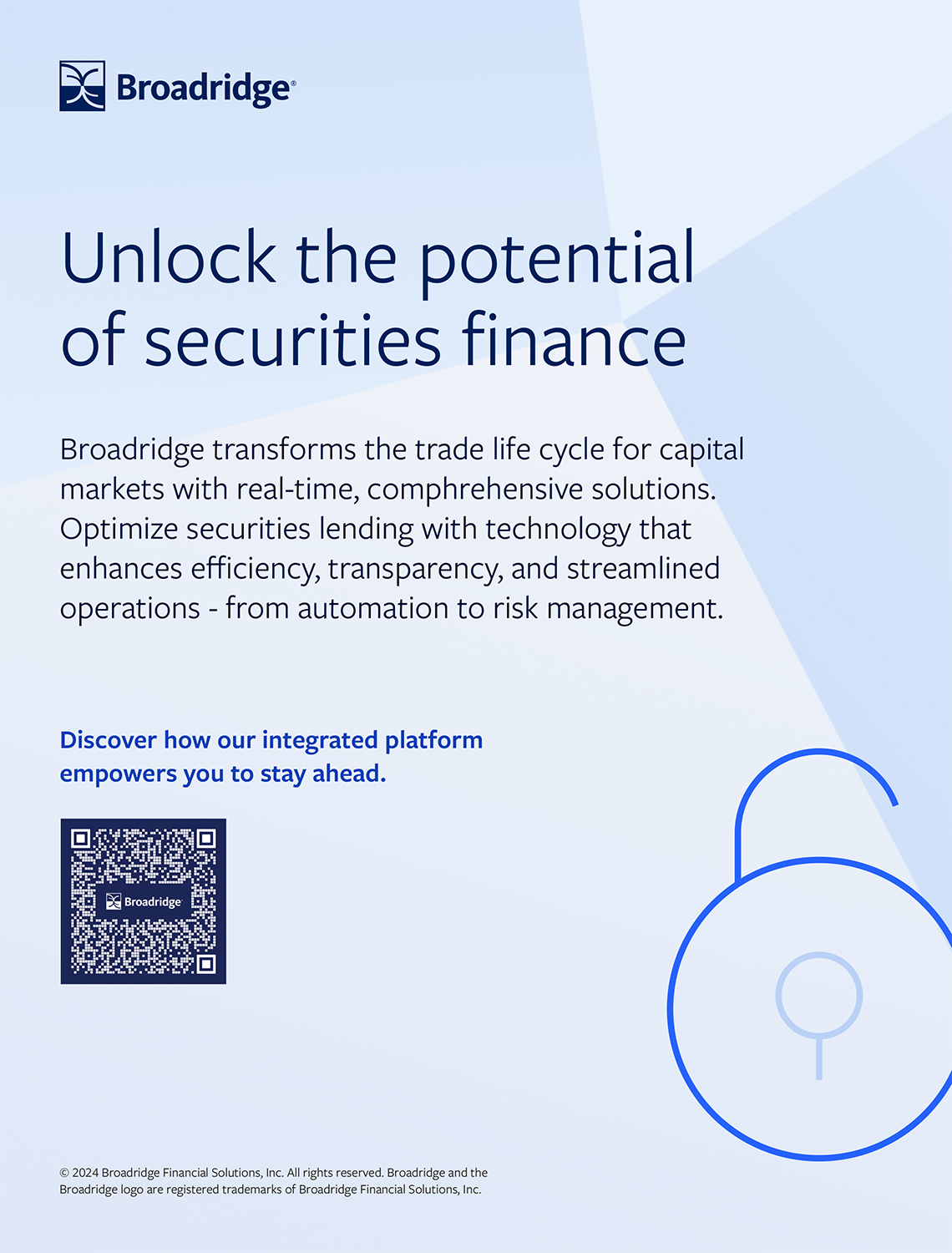BNY Mellon fine-tunes collateral for ETFs
27 March 2014 New York
 Image: Shutterstock
Image: Shutterstock
BNY Mellon has automated the calculation of collateral requirements in the exchange-traded funds marketplace.
The BNY Mellon enhancement is designed to reduce errors in ETF transactions and improve the ability of authorised participants to manage and allocate funds.
The primary market in ETFs is driven by participants that are large financial institutions/broker dealers that trade the underlying securities during the creation or redemption of ETF units.
With its recent innovation, BNY Mellon has developed an automated process for calculating collateral requirements and reporting them to the participants on a daily basis.
Prior to this enhancement, the participants were notified through a manual process that was not as efficient as the new automated system.
This additional functionality builds on BNY Mellon's ETF Center, which was launched as the industry's first global technology platform designed to serve the needs of APs on both the web and mobile applications.
"More efficient and automated transactions will further enhance the reliability and attractiveness of the ETF marketplace," said Joseph Keenan, head of global ETF services for BNY Mellon.
"Authorised participants that work with BNY Mellon will have better reporting and better management of the cash collateral they employ in the marketplace."
With many funds, APs have the option of delivering a basket of securities or cash collateral to an ETF servicer, such as BNY Mellon, when creating new ETF fund shares.
By posting cash collateral on the settlement date of an ETF order, APs can ensure that the ETFs shares are released in a timely manner even if some components of the ETF basket cannot be delivered by settlement date.
The collateral remains in the ETF servicer's account until delivery of the components of the basket covered by the collateral.
The BNY Mellon enhancement is designed to reduce errors in ETF transactions and improve the ability of authorised participants to manage and allocate funds.
The primary market in ETFs is driven by participants that are large financial institutions/broker dealers that trade the underlying securities during the creation or redemption of ETF units.
With its recent innovation, BNY Mellon has developed an automated process for calculating collateral requirements and reporting them to the participants on a daily basis.
Prior to this enhancement, the participants were notified through a manual process that was not as efficient as the new automated system.
This additional functionality builds on BNY Mellon's ETF Center, which was launched as the industry's first global technology platform designed to serve the needs of APs on both the web and mobile applications.
"More efficient and automated transactions will further enhance the reliability and attractiveness of the ETF marketplace," said Joseph Keenan, head of global ETF services for BNY Mellon.
"Authorised participants that work with BNY Mellon will have better reporting and better management of the cash collateral they employ in the marketplace."
With many funds, APs have the option of delivering a basket of securities or cash collateral to an ETF servicer, such as BNY Mellon, when creating new ETF fund shares.
By posting cash collateral on the settlement date of an ETF order, APs can ensure that the ETFs shares are released in a timely manner even if some components of the ETF basket cannot be delivered by settlement date.
The collateral remains in the ETF servicer's account until delivery of the components of the basket covered by the collateral.
NO FEE, NO RISK
100% ON RETURNS If you invest in only one securities finance news source this year, make sure it is your free subscription to Securities Finance Times
100% ON RETURNS If you invest in only one securities finance news source this year, make sure it is your free subscription to Securities Finance Times



